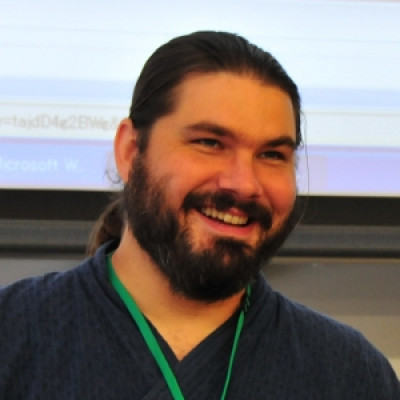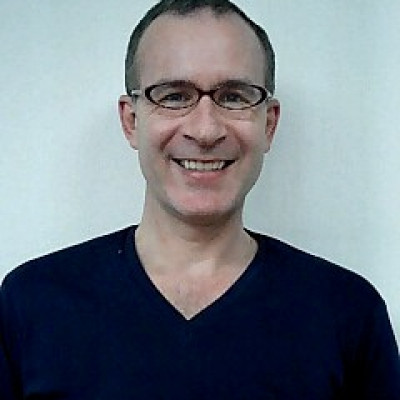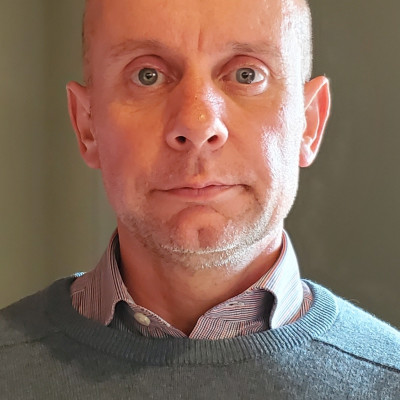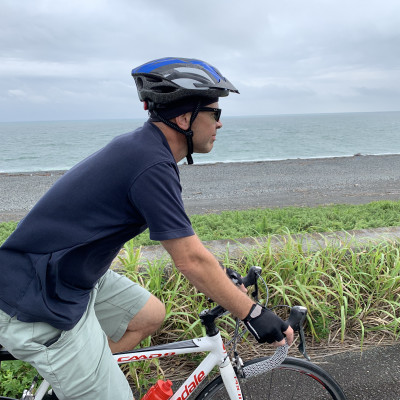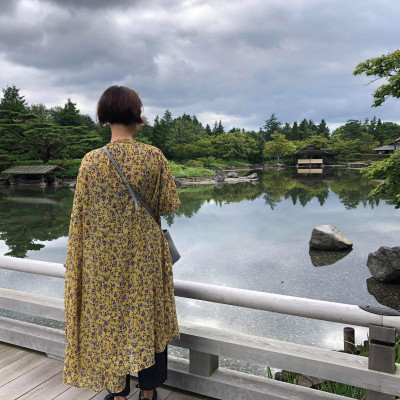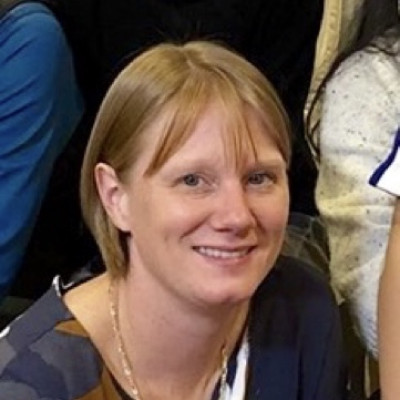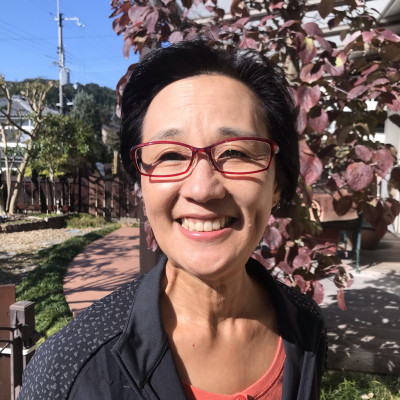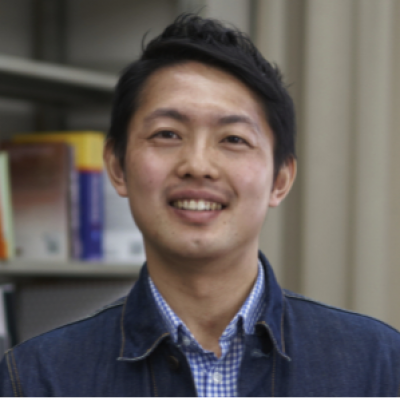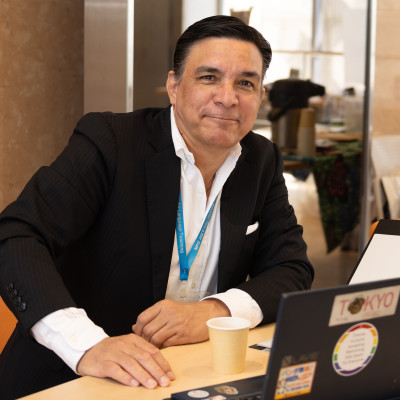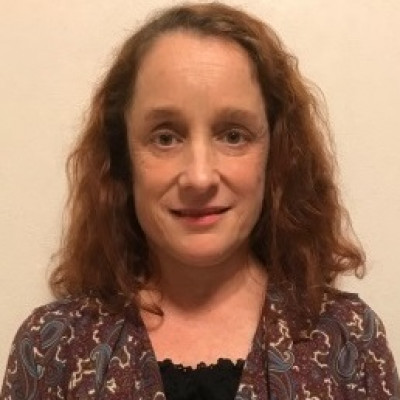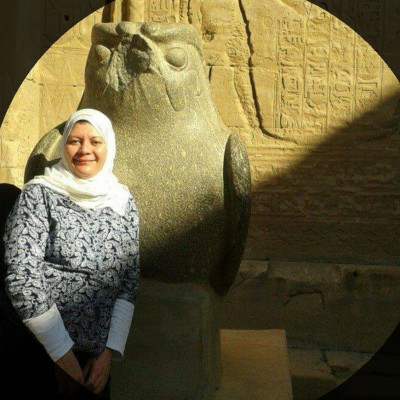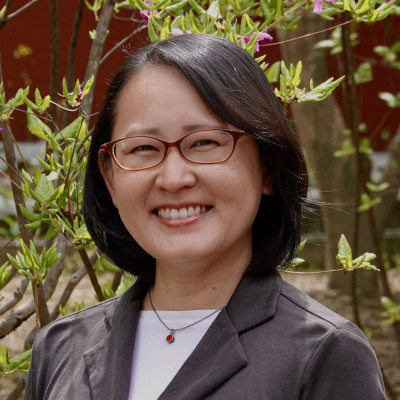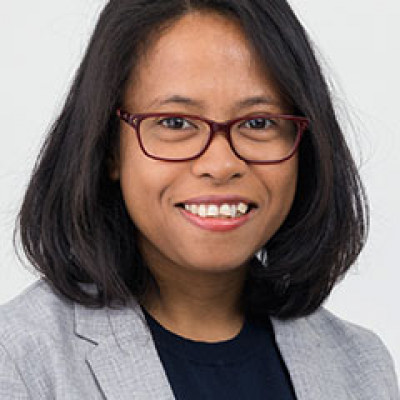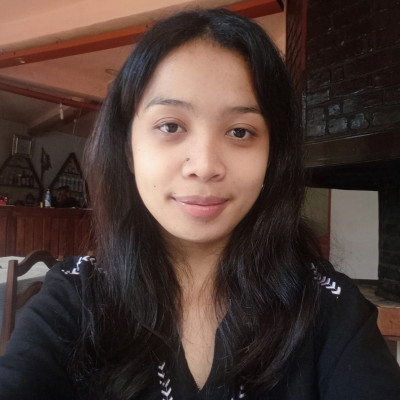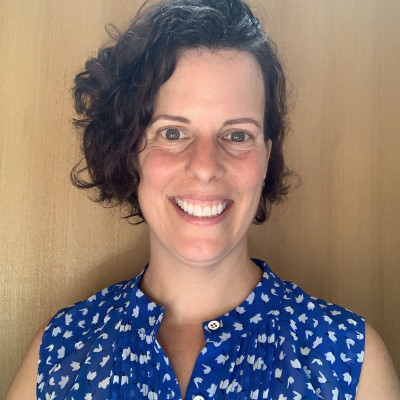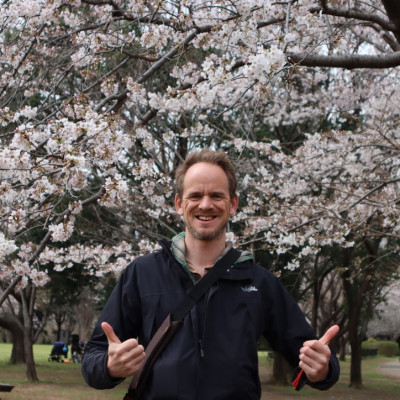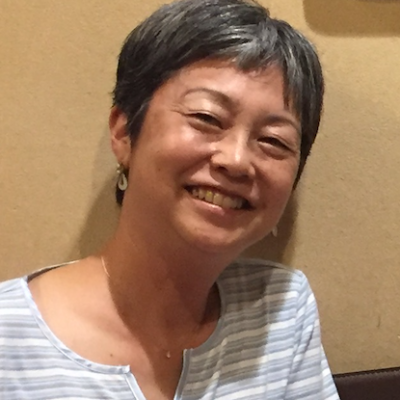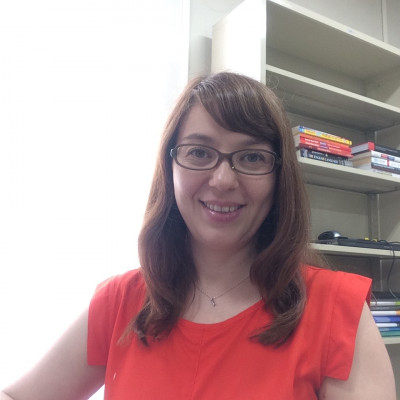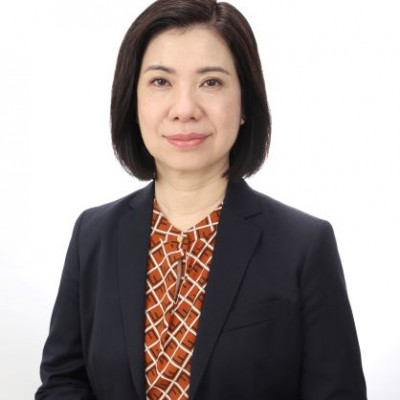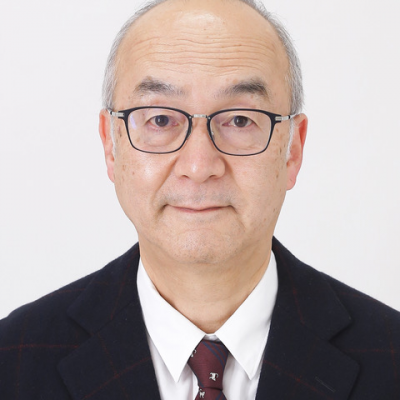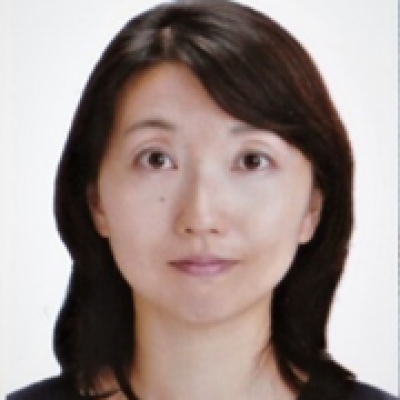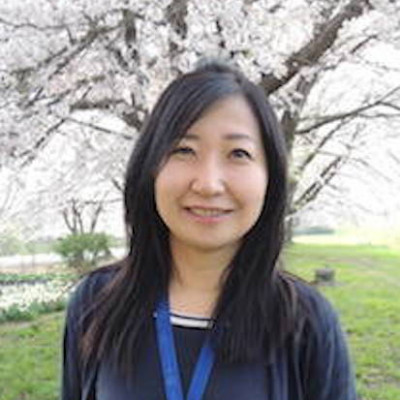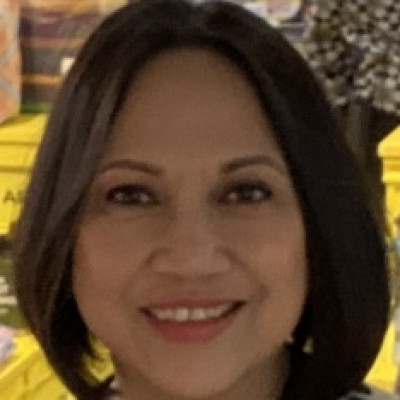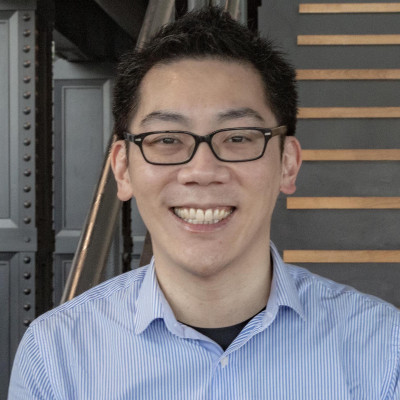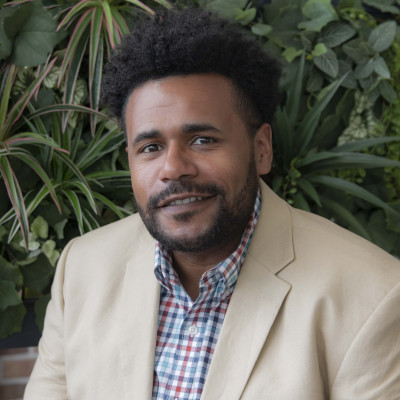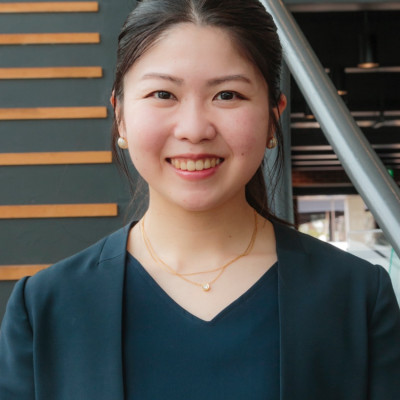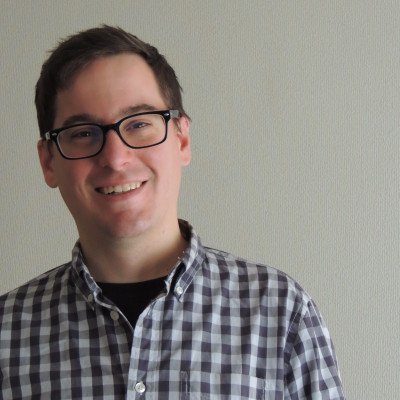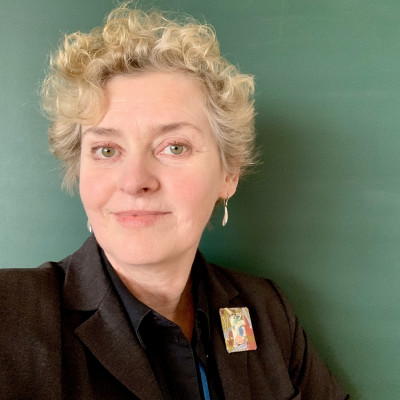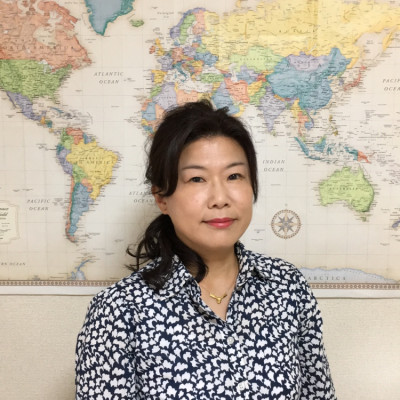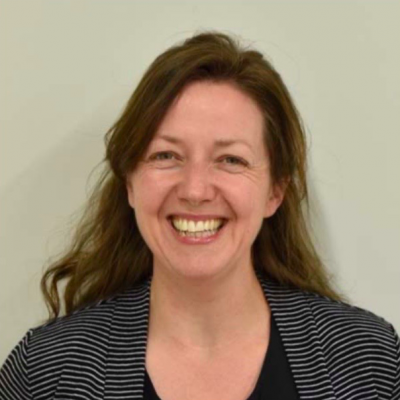Sessions / Any
Online hybrid session workshop #3257
A workshop for hosts and presenters at online and hybrid sessions at PanSIG2022
The Well-Balanced Individual: A Challenge for Educators #3120
On an individual level, a key purpose of education is to bring forth the latent abilities that exist in each person. On a societal level, a primary purpose is to contribute to the emergence of an ever-advancing civilization. These purposes are intimately related and can be achieved when individuals act on the basis of an evolving set of knowledge and skills that has practical and beneficial applications, positive emotional health, an ethical foundation in which the welfare of others is important, and an ability to think creatively. Although foreign language teachers are primarily responsible for supporting their students in their efforts to perform the challenging task of acquiring an additional language, foreign language classrooms can--and arguably should--be the site of more diverse types of learning that help learners develop their innate abilities in ways that touch on four aspects of what it means to be human: cognition, affect, ethics, and creativity. These four overlapping aspects can be embedded in language-learning tasks in ways that can potentially lead to cognitive development, the healthy expression of emotion, ethical thinking, and new and interesting angles on ideas and ways of acting in the world.
(Re) Imagining literature in language education #2653
The goal of content-based instruction (CBI) is to teach the subject—not the language—with the goal of providing genuine topics that interest and motivate the student beyond what many sterile language textbooks achieve. Literature is a creative product aimed at stimulating interest, so as a CBI subject it perhaps has the greatest potential to engage EFL students. Literature ranges from six-word memoirs, to comic books, to lengthy novels: it's creativity knows no bounds. As literature is a creative product, so too are the methods for using literature in language education. This forum mimics the theme of the conference : (Re) Imagining Language Education. How do you use literature to engage your students?
In this LiLT forum, we would like to address this topic. Presenters will share their experiences in how they use literature in their classroom.
Integral to the forum's success is audience participation; questions and insights will be solicited and greatly appreciated. Non-members and LiLT members alike are encouraged to attend and enrich our friendly and inclusive forum.
From Burnout to Burning Rubber #2657
The pandemic introduced numerous challenges to our personal and professional lives as teachers. We may have felt an adrenaline rush in the early days as we had to rally all our personal and collective resources in transitioning to online teaching. But, as the pandemic dragged on, many of us felt the fatigue of having to pivot from F2F to hybrid to fully online teaching at the drop of a dime. The extra energy needed to help students cope with learning through different modes also drained our internal resources. This forum will focus on the strategies that teachers at various levels of education—from K12 to university and language schools and beyond—have replenished their stores of energy and enthusiasm.
Cancelled Can asynchronous formats be used to develop discussion skills? #2852
With the emergence of the coronavirus pandemic, there was a need in many educational contexts to adapt materials and courses originally intended for face-to-face delivery to online platforms in a limited timeframe. This less-than-ideal scenario led to many educators implementing alternative methods for teaching core spoken-language competencies, such as presentation and discussion skills. However, such rapidly implemented adaptations raised numerous questions as to the efficacy of online, asynchronous formats to facilitate the development of spoken-language skills. Thus, this presentation examines the effectiveness of two asynchronous platforms: (1) written discussion-forums, and (2) an audio-visual platform, VoiceThread. These were adopted to assist in the development of discussion skills among intermediate learners at a Japanese university. Examples of the discussion skills that are the focus of this study include agreeing, disagreeing, and negotiating meaning. Based on a qualitative analysis of the transcripts of both formats, the presentation discusses the relative merits of each platform by comparing the discussion skills used. Overall, the findings indicate that VoiceThread is the more effective platform for developing spoken-language skills, but that the discussion forums allow an easy-to-implement, if limited, alternative. Implications for the use of these platforms as part of a discussion skills course will be discussed.
EnglishCentral: Moving Beyond from an EdTech Tool to your Personal Virtual Assistant #3288
This presentation is focused on new features, improvements and the future EnglishCentral is heading into, on how it would stimulate further and keep the users engaging with the software tool, while also keeping up with the rapid evolution of technology. The factors that formulated the changes, enhancements and future plans are based on the accumulation of various study-pattern data and feedback from schools and companies that have been regularly using EnglishCentral. Most of the details and information gathered were on increasing or improving the speaking-related features. Better scoring, more about what is spoken in an intelligible English language, and allowing to provide one’s viewpoint on a topic with an assessment through AI or from actual professionals teaching English. Consideration of users’ comments and feedback relating to EnglishCentral has helped build and improve the software tool based on their needs and wants, making sure their learning experience of the English language is productive and effective.
Bilingualism SIG Forum #2691
The PanSIG conference has always been a chance for special interest groups to come together to focus more intently on their individual needs and goals. Throughout the past two years, participants at our PanSIG forum have shared their experiences about coping with the pandemic, as well as changes and shifts in their bi/multilingual and bi/multicultural stories. This year, as we are finally back together face-to-face, we’d like to invite as many families and interested people as possible, of all ages and backgrounds, to participate in a casual round-table discussion. We’ll provide a brief explanation of the round-table process, topics cards to prompt discussion, and a “talking stone” to facilitate turn-taking. We look forward to sharing stories about how our language learning journeys have been reimagined, as well as any new directions we have been heading. Please join us!
Learners’ views of self-regulated EFL learning: An interview-based study #2892
Technological innovations and the emergency remote teaching during the COVID-19 pandemic have generated adjustments in classroom practices as well as a growing focus on outside-class autonomous and self-regulated learning (SRL), commonly determined by learners’ agency that requires capacity and will (Oxford, 2017). To gain insights into the learners’ perspectives, experiences and approaches regarding their SRL, semi-structured interviews were conducted among 17 relatively proficient Japanese university students. The vast amount of data collected and analyzed through thematic content analysis reveals the learners’ (1) views on Japanese EFL education and the importance of SRL, (2) perceived difficulties in EFL learning, (3) use of digital learning tools, (4) several workable SRL approaches and (5) abilities to control their commitment, satiation, emotion and environment in their outside-class SRL (Tseng et al., 2006). This study inquired among a limited sample of high achievers; however, it uncovers – for instance – Japanese EFL learners’ desires for contextual and communicative approaches as opposed to the generally experienced grammar-translation method, learners’ outside-class initiations in organizing learning groups, or their limited use of digital means. Furthermore, it may serve as a base for teacher development and further research including more variability in learners’ levels of education, EFL proficiency or SRL competence.
The Digital Keyword Method in an Analog Classroom #2823
Despite the importance of lexical development for second-language learners, there seems to be confusion about the best way to teach vocabulary. The four main techniques for vocabulary acquisition mentioned in the literature are rote repetition, structure analysis, semantic strategies, and mnemonic devices (Cohen, 1987).
Although mnemonics have been used for at least 2,000 years (Caplan, 1954), it wasn’t until the mid-1960s that they began to be seriously studied scientifically (Cohen, 1987). This session will be concerned with one mnemonic technique in particular; the Keyword Method (Atkinson, 1975).
This presentation will report on a pilot study that used a one-group pretest-posttest design with 69 Japanese second-year university students who were taught a version of the Keyword Method for remembering vocabulary. A receptive vocabulary test was used as a pre- and posttest measure. Results showed a significant (p < .05) increase in vocabulary scores at the end of the semester, suggesting that an adapted version of the Digital Keyword Method (Sustenance, 2019) may be an effective way of teaching vocabulary in an analog classroom environment.
Make Extensive Reading Easier With Oxford Reading Club #3271
FInd out about the Oxford Reading Club, a digital library of over 1,000 graded readers that will allow your students to read anywhere, anytime, and help teachers to track the reading progress of their students easily.
/l/ vs. /ɹ/: Minimal pair challenges, vocabulary, and communication #2889
Many Japanese English Language Learners (ELLs) have a hate-hate relationship with comprehending and pronouncing /l/ and /ɹ/ words, yet these two phonemes are an inescapable and integral part of the language. The fact that many /l/ words have an /ɹ/ minimal pair in the same part of speech (e.g., the nouns lack and rack) and the multiple vowel sounds of English necessitate learners’ recognizing and pronouncing those words accurately for successful understanding and communication. In helping Japanese ELLs face these /l/ vs. /ɹ/ challenges head-on, teachers can go beyond discrete minimal word pairs to minimal pair sentence contexts, introduce new vocabulary with accompanying images to enhance comprehension, and then help learners transition into communicative practice. The presentation will include a novel method of consciousness-raising about the correct tongue positions, and attendees will engage in fun, interactive, integrated-skills /l/ vs. /ɹ/ activities. These activities can be modulated as individual mini-lessons or extended into longer segments of academic, community, or workplace listening/speaking classes for learners at a range of proficiency levels. Attendees will be provided a set of PowerPoints, including embedded word and sentence pair audio, and the lessons are adaptable for one-on-one or group online or in-person classes.
Making it personal: Meaningful vocabulary activities for the ESL classroom #2964
Vocabulary instruction through meaningful input and output is a bedrock of English language learning. Many common resources tend to lack a communicative component - much less any meaningful or memorable ways of instruction - and usually focus on matching or fill-in-the-blank style activities. Making vocabulary meaningful and memorable in the classroom by using activities that tap into a learner’s personal experience not only leads to a more lively and communicative classroom, but may contribute to better retention over time. Research has shown that this type of structured input and output can focus the learner’s attention to target elements of instruction; however, current practice has focused more on grammatical rather than lexical features. The English instructor is paramount in structuring the lexical content in order to create a personal experience for the language learner. This presentation will illustrate this process through a series of ‘personalization activities’ that have been structured to highlight target vocabulary and use it in a meaningful and memorable way. Moreover, tips and suggestions are shared for adapting and modifying existing resources to make them more personal.
Performance in Education SIG Forum #2693
Performance in Education refers to the use of activities such as roleplays, skits, process drama, readers theatre, speech, debate, oral presentations, dance, music, spoken word, rap, kamishibai, film, and podcasting in education. The Performance in Education SIG focuses on the use of these activities by teachers and students inside and outside of the classroom. The SIG Forum will feature lightning presentations (10-minute presentations) by a diverse lineup of presenters who will share their ideas and experience on the various facets of Performance in Education.
Rethinking Silence and Participation in the Japanese EFL Classroom #2864
Classroom silence is a common source of conflict between teachers and students in the Japanese English as a foreign language (EFL) context. Within second language acquisition theory (SLA) and EFL literature, and especially within communicative language teaching pedagogies, a heavy emphasis is placed on second language (L2) oral production as an ideal, if not essential participation mode. Furthermore, the majority of work from Western researchers has problematized the silence of Japanese EFL learners, traditionally viewing classroom silence as a serious impediment to L2 acquisition and as evidence of non-participation or lack of ability (e.g. Bao, 2014; King, 2013; Shao & Gao, 2016). As a result, L2 oral production is often become conflated with active participation and L2 gains in Japanese EFL classrooms settings (e.g. Bernales, 2016; Delaney, 2012). This presentation aims to connect sociocultural constructions of silence with SLA phenomena and pedagogical factors to examine why Japanese EFL learners continue to choose silence in the classroom (e.g. Bernales, 2016; Bao, 2014; King, 2013; Nakane, 2007; Yashima et al., 2016.) It reflects on these cultural ways of being, participating, and learning to propose a broader conceptualization of L2 classroom participation that acknowledges and accommodates silent modes of participation and different cultural learning modes.
Bringing the World into English Classrooms #3303
Rita Mae Brown said, “Language is the road map of a culture. In this poster presentation, we will explain our approach to developing a classroom where students learn both the target language as well as about the target culture through three main programs: The first program, Local World in English Class, is a program designed to teach students about other cultures in English by using sports and cuisine. During the course of this program, students learn both the target language and also come to understand the relationship of language and culture. The second program, Global Citizen Education, aims to deepen students’ cultural awareness as well as to introduce global issues and to aid students in developing global competencies that allow them to subsequently participate in dialog about issues such as racism and discrimination, the role of NGO'S, and public diplomacy. The third program, English Guided Tour, allows students to study historical locations and then practically apply knowledge learned in English in order to function as a guide for international visitors to Korea.
Why Do You Talk Like That? #2818
A common feedback teachers receive from students is how they struggle to use English in the real world, even after a long period of learning. In short, the English we teachers teach them in class is often not the English we ourselves use - we often don't use full sentences, our daily grammar is basic and we tend to keep our words short and to the point. Once a student gets into the habit of thinking and talking like a textbook or a listening exam CD, the fossilisation is hard to break. This presentation will highlight several areas of ordinary classroom-style English and how they are problematic or even damaging when compared to their real-life English equivalent. The presenter will then propose some simple cognitive processes teachers could use to stop themselves sounding so unnatural and ways to adapt textbook materials, before discussing the paradox of "more means better". Attendees will have a chance to look at lesson plans and textbook extracts so they can think about and discuss how they might be adapted. The speaker hopes to share something of use to all teachers, especially those who teacher young or lower-level learners.
English private tutoring and washback from university entrance exams #2826
It is commonplace in Japan for students in formal education to receive additional English tuition that is provided outside of regular school hours and typically for a fee. Such English Private Tutoring (EPT) (Yung & Bray, 2017) has largely escaped the attention of researchers, though recent studies have sought to investigate its role in language education (see Yung & Hajar, forthcoming). In this presentation, the focus is on the role of juku (cram schools) and yobikō (preparatory schools) in preparing students for high-stakes university entrance exams, which is one of the well-established functions of EPT in Japan. The discussion is framed in terms of test washback, that is, the effect(s) that tests have on learning and teaching. Within this theoretical framework, the key findings will be synthesised from the available studies that have investigated learning, teaching and assessment of English in juku and yobikō. Based on these empirical studies, the presenter will illustrate how exam content drives teaching and learning within EPT and how narrowing of the curriculum in EPT can affect teaching and learning in mainstream education. The presentation will be concluded with a call for further research into this much overlooked area of education.
(Re)framing Mindsets/Attitudes to English Use in Japan #3121
"We are Japanese, our common language is Japanese so why should we speak to our peers in English?" This an oft heard refrain from not only my learners but also in society at large. While this might be true to a degree, in this presentation I will suggest some reasons why this might not be quite the right attitude towards gaining proficiency and may hold a key to Japan's stagnant global English proficiency rank. I will share some of the insights into what I learned during my work over the last several years with teachers and young learners in Nepal and in the Philippines. Both countries have fought, debated and glorified the role and impact of English, but have nonetheless claimed it as one their own. Japan has fought, debated and glorified the role and impact of English, but has not yet claimed it as one of their own. A small shift in perspective in our classrooms and in our teacher-training programs might go a long way in developing an "English-user" identity. In this brief talk, I hope to provide a few illustrations of how I came to this realization and how it might impact how we teach, the resources we use, and how our learners learn.
Effects of weekly explicit grammar instruction on L2 speaking development #2825
This presentation talks about the effects of giving weekly explicit grammar instruction to learners to examine changes in their speaking output over time. Task-based language teaching (TBLT) has flourished in the past several decades as an effective approach for developing speaking proficiency. While TBLT research has recognized the importance of integrating form-focused instruction (FFI) into meaningful tasks (Long, 2015), the effects of grammar instruction on speaking proficiency development, especially over time, remain unclear. Three first-year Japanese university students participated in this classroom-based study for seven weeks. Pretest and posttest were conducted one week before and one week after a seven-week intervention period. During intervention, all three participants received weekly grammar instruction given by the presenter. Each week, they were given 10 minutes of grammar instruction on past tense forms before they narrated a different four-picture cartoon in English (equivalent difficulty level). Narrations produced by the participants were recorded, transcribed and analyzed. Trajectory changes in their speaking output were qualitatively analyzed in terms of complexity, accuracy, and fluency. This presentation concludes with some pedagogical implications for integrating grammar instruction into communicative language teaching classrooms.
Conference proposal writing and reviewing: Constructive feedback #3099
Presenting ideas to fellow teachers and researchers is an essential part of professional development. Concisely describing a presentation in one or two hundred words of text is a challenge. Conference organisers must also put together teams of reviewers to assess the quality of each submission, and ideally write feedback that will be useful for authors to revise their submissions, whether to raise the standards of the current conference or to help authors when they apply to a later conference. This session is intended for anyone thinking about writing a presentation abstract, joining a reviewing team for a conference, or continuing to review and give feedback on submissions. This presentation will first consider the essential form and component of a presentation submission: who it relates to, what it is about, when and where it takes place, and why it is important. Then we will look at how reviewers can write feedback in a tone that is helpful without being patronising, and critical without being offensive. What are the rules concerning abstract writing and when do rules become guidelines? Do abstracts need references (Gough & Taylor, 2018)? Should abstracts include questions? (194 words including these ones!)
GALE SIG Forum #2648
This is the Forum of the gender awareness in language education (GALE) SIG. GALE’s mission is to research gender and its implications for language learning, teaching, and training; to improve pedagogical practices, develop language teaching material; to raise awareness of workplace and human rights issues related to gender for language professionals; and to increase networking opportunities among language professionals interested in teaching, researching, and/or discussing issues related to gender and language education. Forum speakers represent a wide range of research and perspectives on gender awareness in language education within the SIG and the organization of JALT as a whole. Presenters will engage in discussion of the importance of gender issues within the language teaching profession.
EFL Games with CALL #2654
The CALL SIG Forum this year will be discussing the topics of games, play, and language learning with technology. Speakers in the forum will include: Brian Teaman, Hanaa Khamis, and Brian Gallagher All conference participants are welcome to join the forum and engage with the speakers.
This forum will be closely linked to the JALTCALL 2022 Conference theme of Gameplay and Technology in Langauge Learning. JALTCALL 2022: PLAYFUL CALL Exploring the Intersection of Games and Technology in Language Education Taking inspiration from Zimmerman’s manifesto which proposed the 21st century is the “ludic century,” the focus of the 2022 conference is “Playful CALL” which we interpret as the exploration of play, games, and other ludic approaches to CALL research and practice. https://jaltcall2022.edzil.la/
Expertise in L2 Teaching: Implications for Teachers, Administrators, and Researchers #2713
Teaching is a challenging profession. It requires juggling multiple roles in and out of the classroom while also being a mentor, an administrator, and a researcher. Therefore, as teachers gain experiences and establish routines, it is natural that some fall into a pattern of relying on the same teaching strategies and activities with little change. However, others continue to create new class activities or refine old ones as well as helping colleagues and contributing to improving programs. These teachers are often exceptional, and in many cases considered experts. Researchers have unveiled characteristics of expertise in teaching as well as its developmental processes (e.g., Asaba, 2019; Christiansen et al., 2018; Tsui, 2003). However, what these findings mean for educators have not been fully explored and discussed. The purpose of this presentation is to explore what previous studies of expertise in L2 teaching suggest for teaching and learning in L2 communities. The presenter first introduces previous literature and key concepts related to expertise in teaching, including teacher knowledge and a model of expertise known as progressive problem solving (Bereiter & Scardamalia, 1993). Then, the presenter will discuss implications that these studies have for teachers, administrators, and researchers in L2 teaching contexts.
Challenging Conventions: Opening up New Spaces in Learner Development (FACE TO FACE) #3108
This forum will examine how new learning spaces can help learners grow beyond conventional education environments. Presenters will explore holistic and ecological perspectives on learners’ growth, taking into account multiple aspects of their experiences, their interactions with others, and different affordances in diverse learning environments and spaces. The forum will include both studies that shed new light on the impact of sociocultural and psychological factors on the development of learner autonomy, as well as practice-related accounts that explore learners’ practices in a range of learning spaces outside of conventional classroom settings. In the forum participants will have opportunities in pairs and small groups to discuss and reflect on different non-conventional environments, spaces, and processes that learners can access and/or use. The combination of these theoretical and practice-based perspectives will encourage us to think about learner development from fresh angles, not only under the current and post-pandemic situation, but also beyond, so that we can come away from the forum with fresh ideas for challenging conventions and opening up new spaces in learner development in our own learning, teaching, and research. Round One 11:50 to 12:20 Dominique Vola Ambinintsoa Razafindratsimba, Fanaperana Haingo Rajaonaritiana, Volatiana Olivia Rasoanindrina and Jenny Morgan Round Two 12:20 to 12:50 James Underwood, Gretchen Clark and Greg Rouault
TYL & ICLE SIG Forum: Intercultural understanding in Japanese schools #2645
This forum is a collaboration between the Teaching Young Learners (TYL) SIG and the Intercultural Communication in Language Education (ICLE) SIG. Its aim is to showcase how intercultural communication is approached in primary and secondary schools from a variety of perspectives. Some of our invited presenters will share their research based on descriptors from the Framework of Reference for Pluralistic Approaches to Languages and Cultures (FREPA) as to what degree intercultural communicative competence is promoted in the new elementary school English textbooks. Presenters will also discuss the difficulties of teaching aspects of an L2 that are not a common feature in the L1 sociocultural environment, engaging ways in which a teacher can introduce their own country and culture to a class, how the School Lunches Project promoted the development of an investigative stance towards plurality, and how intercultural understanding is incorporated in pre-service teacher education.
Challenging Conventions: Opening up New Spaces in Learner Development (ONLINE SESSIONS) #2652
This forum will examine how new learning spaces can help learners grow beyond conventional education environments. Presenters will explore holistic and ecological perspectives on learners’ growth, taking into account multiple aspects of their experiences, their interactions with others, and different affordances in diverse learning environments and spaces. The forum will include both studies that shed new light on the impact of sociocultural and psychological factors on the development of learner autonomy, as well as practice-related accounts that explore learners’ practices in a range of learning spaces outside of conventional classroom settings. In the forum participants will have opportunities in pairs and small groups to discuss and reflect on different non-conventional environments, spaces, and processes that learners can access and/or use. The combination of these theoretical and practice-based perspectives will encourage us to think about learner development from fresh angles, not only under the current and post-pandemic situation, but also beyond, so that we can come away from the forum with fresh ideas for challenging conventions and opening up new spaces in learner development in our own learning, teaching, and research.
Round One 11:50 to 12:20 Phillip A. Bennett and Isra Wongsarnpigoon and Andrew Barfield
Round Two 12:20-12:50 Yuri Imamura and Michael Kuziw
(Re)imagining language education in relation to the CEFR/CV and the CEFR-J #3118
Since the publication of the CEFR in 2001, policymakers, researchers and teachers in foreign language education around the world have started to use the framework to review their own systems and practices. This includes the structure and content of language syllabuses, textbooks and teaching materials, as well as instructional and assessment methods. The publication of the Companion Volume (CEFR/CV) in 2020 will further concretise the principles of the CEFR and re-propose a new framework for language teaching, including sign languages, mediation skills and online communication. The application of the CEFR, with its extremely broad scope, can sometimes be a hindrance to a sound understanding of its principles and fundamental concepts, which can lead to applications based on superficial knowledge. It is also true that it is difficult to implement language education policies that cover the full range of the CEFR.
In this talk, I will give an overview of the CEFR and the CEFR/CV and discuss the implications of using the CEFR as a common framework for all languages. As an example of focused applications, I will argue what the future of intelligent CALL based on the selection and arrangement of language materials by the CEFR levels would be like. Finally, as Principal Investigator of the CEFR-J, a localization project of the CEFR in Japan, I would like to consider what is needed for the CEFR to truly take root in foreign language education in Japan.
Cancelled School Owners Forum #2692
The SIG forum is where owners, or people interested in starting their own school, can share ideas, experiences, and solutions to the academic and commercial challenges they face which cannot be addressed through other SIGs.
These include but are not limited to:
Recruitment & Training
Tax, Accounting, Banking and Bookkeeping
Technology & software for language schools
Curriculum development for language schools
Marketing & advertising for language schools
Partnerships & Trade between owners
We also will talk about how most independent schools do not fit the stereotype of being a "sing and jump around" school. Many schools teach all four skills, have extensive reading libraries, do cultural exchange projects, and use cutting age techniques such as flipped classrooms. These schools have students who can demonstrate real progress. These schools are also schools that will attract more students and keep them for years.
Barrier-free learning in Japan: Panel #2994
The panelists will talk about the lack of knowledge in creating barrier-free classes for learners with different abilities, current changes in policies in Japan, and how teachers are working with students to make their classes more inclusive. The session will begin with definitions of disabilities, issues faced by teachers who are not trained in recognizing them, and how teachers can create or modify classes to be effective for all students. Panel members will speak about helping students at all levels of education. We also hope to have enough time to answer participants' questions and help them make their own classes barrier-free.
Reforming English language teacher education in Nepal: Prospects and challenges #2908
Teacher education provides a framework of ideas to enhance professionalism in foreign language teaching. It is concerned with exploring good practices in teaching, which have already been tried and tested in many educational contexts. Similarly, teacher education provides the language teachers with insights into the nature of language teaching. With the explosion in language teaching, there has been an increased demand for language teachers, and the consequent need to train these teachers. With this reference, this paper focuses on the review of the existing situation of teacher education with the relevant considerations of epistemological as well as the paradigm shift of teacher education from global to local perspectives in Nepal. The present paper is based on content analysis where the literature from the different contexts such as the context of developed countries, developing countries, and the local contexts was reviewed under the qualitative research approach following the focus group discussion. With the reference to existing literature and views of headteachers and teachers through focus group discussion, the paper discusses several perspectives of reframing the English Language teacher education program. Mainly, policy-related, pedagogical, technological, and research-based challenges and their mitigating aspects have been illustrated in the paper through focus group discussion and review of the relevant works of literature. Therefore, the paper attempts to explore the prospects and the challenges as the foundational components to reframe teacher education in the context of Nepal.
